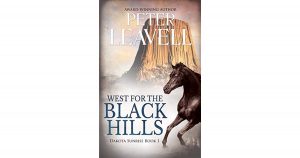by Peter Leavell, @PeterLeavell
I sat down to write a novel. My daughter tripped, fell, and broke her arm. A part of me, a small part, was irritated at the interruption. Bad, Peter, bad.
Another day, a fire exploded in our neighbor’s apartment. I was angry. How dare they interrupt my writing session by gutting out their kitchen with flames? Thankfully, no one was hurt.
And still, again, on a day I planned to write, my wife came down with COVID and influenza at the same time. How dare she?
Is the role of the writer’s neighbors and family to slow the writer down?
Let’s be frank. Families can be frustrating to the writer. The writer must, after all, get his or her own backside in a chair and spend some quiet time writing. Nero fiddled while Rome burned, why can’t I be allowed to create fake worlds during my kid’s surgery?
G.K. Chesterton writes about the family in a book titled, ironically, Heretics. Families are vital to this world and to the writer.
In the large world, we choose our clique. For example, if you want to create a Grecian urn, it helps to join a pottery group for support. If you want your house covered in urns, would you join Pottery Smashers Anonymous? Probably not. Would you join Angry Book Burner Friends to support your writing goals? Again, probably not. And you wouldn’t join Anonymous Atheists to worship Christ.
There is choice when joining a clique. You can be in a group with little or no friction.
Families aren’t chosen. They are, to us, accidents of God’s grand design made up of a mixture of interpersonal wants and needs. And those needs aren’t designed to put the writer’s backside in a chair to write.

Should we be angry at our families?
Chesterton celebrates the family and all its imperfections. We’re stuck. And that’s the beauty of it all.
The family adventure isn’t chosen but chooses us. It’s where the supreme event isn’t falling in love but being born into a splendid and startling trap.
The world and our clique may be able to do without us. And yet, we step into a world of children, aunts and uncles, grandparents, and parents who could not do without us. This creates a well-rounded individual. We should be able to, as Chesterton points out, crawl into any chimney in this world and get on with the people in the house. Families make us who we are.
In this atmosphere, the novel takes place. It’s birthed in a maelstrom of human emotions and imperfections not found in a clique, where you write the emotions and events into your work. Your aunt is a pain in the neck, but so is mankind. Your father is unreasonable, but so is mankind. Grandfather is silly and old, just like mankind. These are the things stories are made of. Not a world of our permission, but moments born from the chaos of forced community where love blossoms. Those are the moments of importance.
In the end, writing is made up of stolen moments where we journal our private lives onto pages from which the world can read their own pain echoed back to them. Without your family’s constant interruptions, heartache, laughter, accidents, birth and loss, you can only create a sterile world from which you have nothing interesting to say.
Embrace the holidays this year, and when they’re asleep, sit down to write. Show the world the humanness living around you.
Philip Anderson keeps his past close to the vest. Haunted by the murder of his parents as they traveled West in their covered wagon, his many unanswered questions about that night still torment him.
His only desire is to live quietly on his homestead and raise horses. He meets Anna, a beautiful young woman with secrets of her own. Falling in love was not part of his plan. Can Philip tell her how he feels before it’s too late?
With Anna a pawn in the corrupt schemes brewing in the nearby Dakota town, Philip is forced to become a reluctant gunslinger. Will Philip’s uncannily trained horses and unsurpassed sharpshooting skills help him free Anna and find out what really happened to his family in the wilderness?

Peter Leavell, a 2007/2020 graduate of Boise State University with a degree in history and a MA in English Literature, was the 2011 winner of Christian Writers Guild’s Operation First Novel contest, and 2013 Christian Retailing’s Best award for First-Time Author, along with multiple other awards. An author, blogger, teacher, ghostwriter, jogger, biker, husband and father, Peter and his family live in Boise, Idaho. Learn more about Peter’s books, research, and family adventures at www.peterleavell.com



Comments 1
Thanks Peter! I’m about to start a second book and this is a great encouragement. And the word God gave me for this year was “ undaunted”!
Blessings on you and your writing!
😌Yvonne